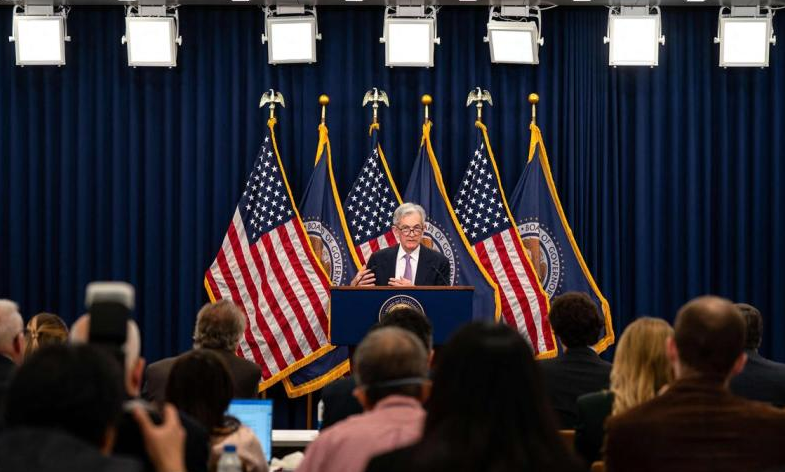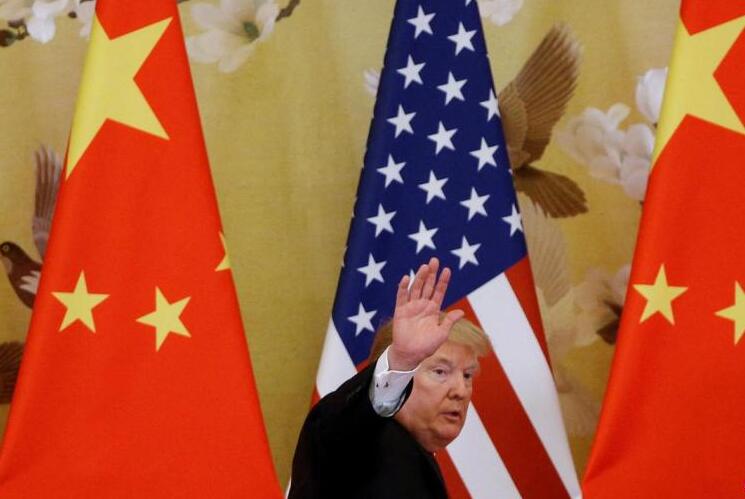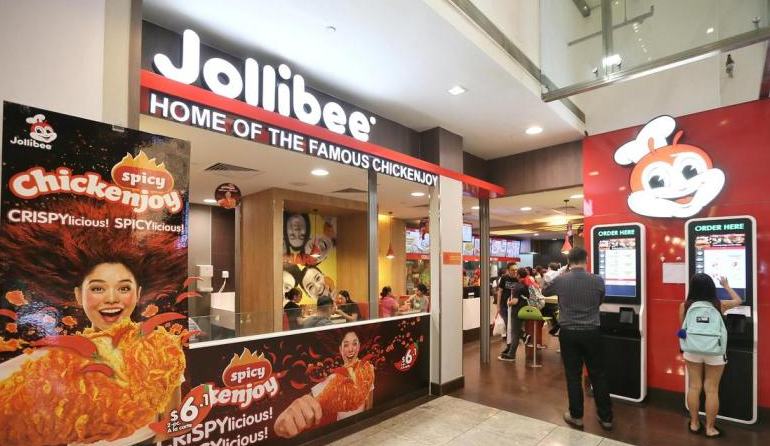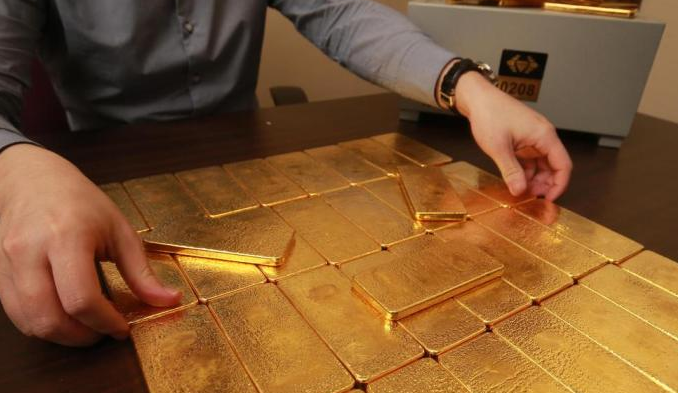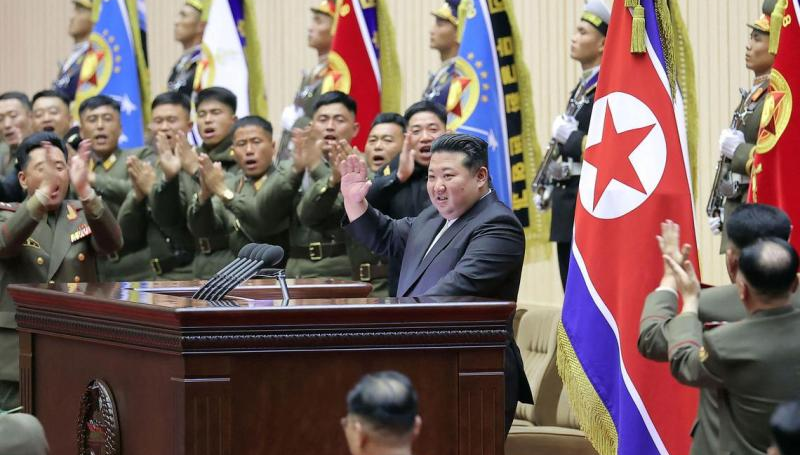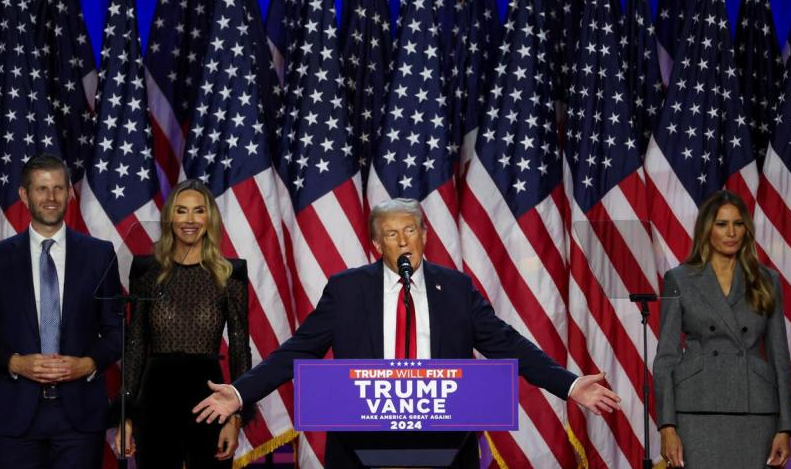
The former President Trump of the United States has made a triumphant return to the White House with an overwhelming victory, leading to record highs in the American stock market. However, the stock price of Taiwan Semiconductor Manufacturing Company (TSMC) has been declining for several days, with the Taiwan Stock Market falling below 23,000 points on Wednesday, November 13.
In October, TSMC achieved a record monthly revenue of 314.2 billion New Taiwan Dollars (NTD), setting a new high, with an average daily revenue of 10.5 billion NTD. Analysts described TSMC as scoring 120 points but still failing due to geopolitical risks.
Some economists and investment institutions have pointed out that President Trump, who prioritizes “America First,” is very concerned about the trade deficit. Countries and regions like South Korea, Vietnam, and Taiwan, which have benefited from the U.S.-China trade war and the technology supply chain shift, have significantly increased their exports to the United States in recent years, resulting in substantial trade surpluses, making them a priority for Trump to address.
President Trump accused Taiwan of “stealing” American chips in late June and openly admitted to facing practical difficulties in defending Taiwan from thousands of miles away. He claimed that Taiwan should pay protection fees to the United States, causing anxiety among various sectors in Taiwan.
TSMC’s first wafer fabrication plant in Arizona, USA, is set to hold a completion ceremony in December and officially begin mass production of 4-nanometer wafers. There are rumors that TSMC may advance its investment in 2-nanometer technology and move its advanced packaging technology CoWoS to the United States as a gesture of commitment. TSMC has emphasized that its current investment plans remain unchanged. However, with the arrival of the “Trump 2.0” era, how much autonomy will TSMC have?
TSMC’s founder, Morris Chang, emphasized during a TSMC sports event at the end of October that 2024 would be another record-breaking year for TSMC, but “the most severe challenges are right in front of us.” TSMC is no longer just a battleground for geopolitical strategists but has truly become a critical battleground.
President Trump’s demands on Taiwan for protection fees do not only involve military acquisitions but also semiconductor supply chains like TSMC and technologies such as artificial intelligence. The construction and mass production of TSMC’s first wafer fabrication plant took four years, possibly setting a record for the highest overseas investment and longest duration in TSMC’s history. TSMC’s success is attributed to Taiwan’s abundance of high-end technology talent and diligent work ethic, which cannot be replicated by American work habits and local regulations. Given the higher manufacturing costs in the United States, any additional investment requirements could weaken TSMC’s profits.
Moreover, Taiwan has seen a significant increase in investments in the United States over the past two years. Reports indicate that Taiwanese technology companies have continuously announced expansions in the U.S., totaling over 500 billion NTD since the beginning of this year. From upstream wafer fabrication, semiconductor materials, equipment, and packaging testing to downstream assembly, almost all processes have been relocated to the United States at the request of the U.S. government or customers. The Director of the Business Cycle Forecasting Center at the Taiwan Institute of Economic Research, Sun Mingde, described it as “Biden wants a pearl, while Trump wants a necklace.”
Reuters has also reported that SpaceX, the world’s richest man Elon Musk’s company, has requested Taiwanese suppliers to relocate their manufacturing sites overseas due to geopolitical risks. The Taiwan Ministry of Economic Affairs has labeled this rumor as misinformation warfare. Musk has previously referred to Taiwan as an inseparable part of mainland China and compared Taiwan to Hawaii, drawing strong criticism from the Taiwanese government. Musk has actively supported Trump’s reelection, and Trump has praised Musk. Musk’s significant influence on Trump is undeniable, and while Trump is surrounded by anti-China hawks, Musk’s views on cross-strait relations cannot be overlooked.
In addition, foreign media have reported that Taiwan has discussed a 480 billion NTD military procurement list with the Trump team to demonstrate its determination for self-defense. Even scholars from the pro-independence camp have emphasized that Trump’s strong style and unpredictability will undoubtedly make Taiwan’s diplomatic environment more challenging. Future Taiwan-U.S. dialogues will need to align with Trump’s language of mutual interests.
Sources reveal that officials from the Democratic Progressive Party (DPP) government have continuously assured the United States that “we are ready,” but the U.S. has later discovered that this may not be entirely true. Weng Lüzhong, Associate Professor of Political Science at Sam Houston State University, pointed out in a radio program that he had discussions with Florida Congressman Mike Waltz, who is rumored to be taking over as the White House National Security Adviser. Waltz, known for his green beret background, emphasized repeatedly that “Taiwan needs to be truly ready for war.” Weng believes that the government must make the public understand the true situation.
Trump has also called on Taiwan to increase defense spending to 10% of its Gross Domestic Product (GDP). Based on next year’s projected GDP of 26 trillion NTD, this would amount to 2.6 trillion NTD, approximately 80% of the total annual budget of 3 trillion NTD. Even raising it to 5% would still be a substantial figure, and Taiwan would have to sacrifice social welfare or education funding to fill this budget gap.
Trump once said that Taiwan is just a “pen tip” on the table, with the mainland being the table, highlighting the vast difference in their importance to him. Even if Trump and his team are strongly anti-China, they are unlikely to sacrifice American interests for Taiwan. Taiwan is more likely to become a pawn under a “big deal” between Trump and Beijing, and its situation should be carefully considered, with a wise response planned as soon as possible.



